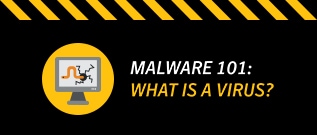LOST YOUR DATA FROM A VIRUS?
We have years of experience recovering files from virus attacks.
Different Types of Viruses
Browser Hijacker
A browser hijacker can display unwanted advertising by replacing your home page or search engine with its own page. While this type of virus is merely a ruse to increase web ad viewing and revenue, it can be a bothersome and distracting hijacking that should be removed from your computer.
Direct Action Virus
A direct action virus is a file infector virus that attaches itself to an.exe or.com file when it is installed or executed. Once this happens, the virus can spread to other files, rendering them inaccessible. While the direct action virus is unwelcome and can make it difficult to access files on your computer, it is rarely capable of completely deleting files and can usually be removed with the help of an anti-virus programme.
Resident Virus
Because both are file infector viruses, resident viruses are similar to direct action viruses. A resident virus, on the other hand, installs itself on the computer and is thus considered more dangerous and difficult to eradicate than a direct action virus, which requires the user to install or execute the infected file for the virus to be activated. Resident viruses can be either fast infectors or slow infectors, which affects how quickly they infect your computer's files and documents. Resident viruses must be removed as soon as possible with anti-malware software, as the virus has the potential to infect your entire anti-virus software.
Boot Sector Virus
While the boot sector virus has become less common in recent years due to its prevalence in floppy discs used to boot computers, it can still be found on modern computers' "Master Boot Record." However, because today's computers have moved away from the floppy disc, boot sector virus cases are becoming less and less common.
File Virus
Viruses in executable files such as.exe,.vbs, and.com are common. When you run an executable file that has been infected with a file virus, it has the potential to enter your computer's memory and run it. Direct action and resident viruses are two types of file viruses, each with its own set of characteristics and removal methods. If you suspect your computer has been infected with a file virus, speak with a specialist, such as the experts at Atlantic Data Forensics, to learn more about your options and how you can prevent future infections.
Macro Virus
Macro viruses are written in macro language, which means they can imitate other macro-enabled software programmes like Microsoft Word or Excel. Macro viruses are dangerous because they can appear as a Word document and, when opened, can infect the user or redirect them to a malicious website or programme, most commonly a pornographic website. As soon as you discover a macro virus, you should seek the assistance of a data specialist.
Multipartite Virus
Able to infect computer softwares using multiple methods, multipartite viruses can be difficult to target without the help of a specialist or quality anti-malware program. The virus can attack both the boot sector and executable files at the same time, whereas other viruses usually spread via one of these methods.
Polymorphic Virus
Because polymorphic viruses have the ability to change their code every time the infected file is executed, they are extremely difficult to detect using standard anti-virus software. Because most anti-virus programmes detect and remove viruses based on their code, polymorphic viruses pose an additional challenge due to their ability to change their own code with each activation.
Stealth Virus
Stealth viruses get their name from their ability to go undetected for long periods of time and change information on your computer by entering the memory of a file. While stealth viruses are difficult to eradicate because they tend to go undetected by anti-virus software, a high-quality anti-virus programme can detect and remove a stealth virus.
Web Scripting Virus
A web scripting virus is a virus that infects the security of your web browser, allowing hackers to insert their own script into your web page and steal your information through your browser. These viruses can have a big impact, especially if they infect well-known and influential websites that get a lot of traffic every day.